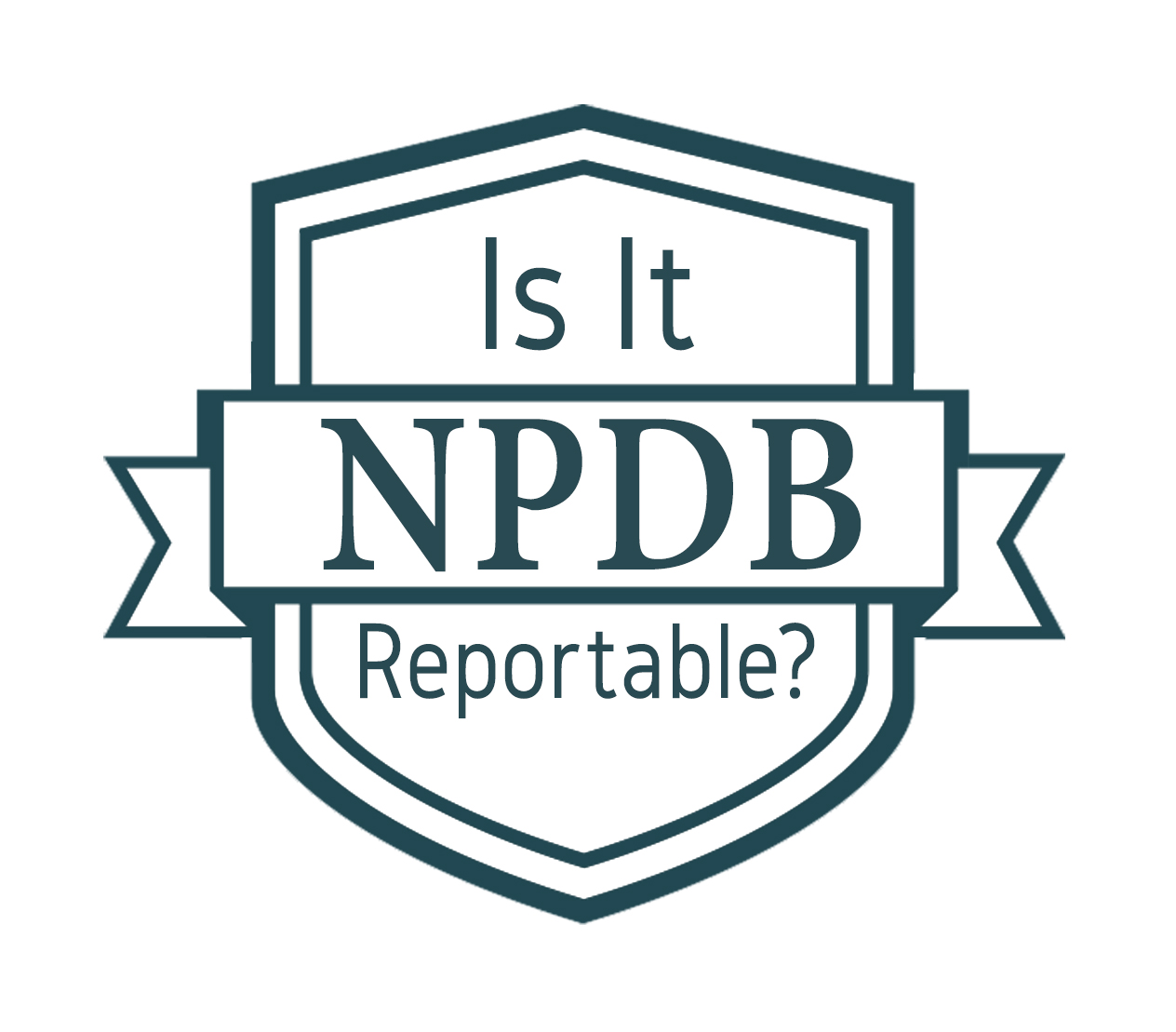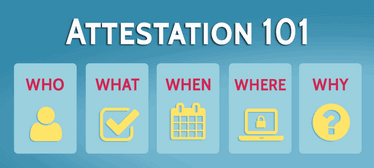NPDB Insights - August 2019

Is It Reportable?
Dr. Jones, a physician, held clinical privileges at a hospital entitling her to perform specific procedures. The head of Dr. Jones' medical department pointed out to her that she was no longer performing some of the procedures, and the department head suggested that she voluntarily relinquish those privileges. Dr. Jones agreed. Should this voluntary relinquishment of privileges be reported?
No. Dr. Jones was not under investigation when the privileges were voluntarily relinquished, and consequently no reportable action occurred.
Should I Report an Action if it was Taken Through a Private Agreement?

If you are a state licensing or certification board and you took a reportable adverse action, you must report it to the NPDB even if the action is taken through an alternative method.
Private agreements, consent orders, binding agreements, or other alternative methods do not negate reportability. It is the action itself, not the method by which you took the action, that determines whether you must report it. When reporting private agreements, or other alternative methods, remember the following:
- Language within the agreement does not change federal law. If an action is considered reportable under federal regulations, then you must report it to the NPDB, even if an agreement states that your organization will not report it.
- The action does not have to be publicly available to be reportable.
- The action needs to be the result of a formal proceeding, such as a consent order, settlement agreement, or formal agreement. If a procedure is listed as "informal" but follows a standard protocol and has defined policies, the resulting action is still reportable.
Test Your Understanding
A patient submits a complaint about his dentist to the state licensing board. The complaint results in a reprimand, taken through a private agreement. The private agreement states that the dentist has to complete 10 hours of professional boundary training. In return the board won't report the dentist to the NPDB. Would you report it?
Yes, the reprimand is considered a reportable adverse action, so you must report it to the NPDB.
For more information on private agreements, visit the Guidebook, Chapter E. For a quick guide to reporting state licensure actions, visit our NPDB Guide to Reporting State Licensure Actions infographic.
New Group to Join the Attestation Effort
This month, all other organizations registered with the NPDB join hospitals, health centers, health plans, medical malpractice payers, federal organizations, and state licensing boards in our attestation effort. The newest and largest group to join attestation includes ambulatory surgery centers, group medical practices, skilled nursing facilities, and all other organization types except authorized agents.
Attestation is a national education and outreach effort to ensure that all eligible entities are meeting their reporting requirements as mandated by federal law. During attestation, Data Bank administrators and other entity officials confirm that their organization has submitted all reportable adverse actions and medical malpractice payments. Complete and accurate reporting provides queriers with the information they need for credentialing, privileging, and employment decisions that affect patient safety.
Attestation occurs when you renew your organization's registration. If your organization is asked to attest, detailed instructions will appear when you sign into your account to renew. We will send you reminder emails 60, 30, and 5 days before registration renewal. To prepare for attestation, review your organization's records to ensure you have submitted all reportable actions and payments.
For additional information, visit the Attestation page.
Updated Compliance Review Results

The Health Resources and Services Administration reviews the completeness and accuracy of information that state licensing and certification agencies submit to the National Practitioner Data Bank. This review process is part of our mission to improve health care quality, protect the public, and reduce health care fraud and abuse in the United States.
Review Process
Last year, we launched a system enhancement that asks state licensing boards to complete their compliance reviews when they renew their registration. For more information, see February 2018 Insights article "State Licensing Board Registration Renewal to Include Compliance Reviews." Every 2 years, we review the compliance of all 50 states, D.C., and U.S. territories upon the entities' registration renewal dates. Half the entities are reviewed in each year of the two-year period. Review the Compliance Status page for status definitions.
Results
Our most recent analysis examined adverse actions taken between January 2016 and March 2018, for a subset of the most-queried professions, and a random sample of the other professions. Out of the 81 state licensing boards we reviewed in this subset, 78 were compliant and 3 were noncompliant. The following boards are noncompliant:
- Kentucky Board of Licensed Professional Counselors
- Kentucky Board of Licensure For Massage Therapy
- Louisiana Board of Massage Therapy
For a full compliance summary, visit the Reporting Compliance Status by State page.
The latest updates and resources are available at https://www.npdb.hrsa.gov.
Previous editions of NPDB Insights are available in our archive.
 An official website of the United States government.
An official website of the United States government.


